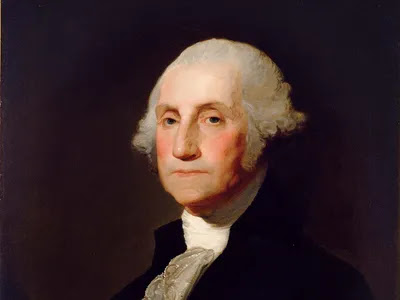The August 29, 2024, edition of The Wall Street Journal included a commentary by F.H. Buckley. Buckley's column was titled, "The Biden-Harris Paradox: A Strong Presidency, No President." As I read what Buckley had to say, I was rather forcefully struck by the following:
In the efficient constitution ... real power resides in the executive branch and almost the only time Congress matters is when the Senate is asked to confirm a judicial appointment. That’s relatively novel, and a consequence of the politicization of the bench. Formerly political policies became judicialized, and the abandonment of the senatorial filibuster for judicial appointments made it possible to confirm nominees at the political margins. That’s all unfortunate, but in other respects the filibuster has amounted to a transfer of power from a Congress that can’t get things done to a president who can.
It has become a "taken for granted" truth that what really counts, in American government, is who the president is. Congress isn't worth much. That's because we have wanted an "efficient constitution" - as Buckley puts it. I hadn't heard that formulation before, but there is something to it. Isn't it more "efficient" to put one person (the president) in charge? Congress is just a barrel of monkeys. They're all running around, like crazy, disagreeing about everything. We have, without much debate about it, transformed our system of "checks and balances" into a system in which the president (and the president alone) is going to be able to "fix it," no matter what the problem might be.
That claim, of course, the claim that, "I, alone, can fix it," is vintage Donald Trump. But what Buckley is essentially saying - without really saying it - is that it is not really fair to blame this outrageous assertion on our former president - or, at least, not on him alone. Buckley is pointing out that our "system" of government - in its current iteration - really calls for a president to take this approach to her or his role. An "efficient Constitution" puts one person, "the president," in charge.
That "efficient Constitution" idea, however, is absolutely at odds with the system of government established by the Constitution ratified in 1769. Our original Constitution - a "non-efficient Constitution" - is premised on the idea that the House of Representatives and the Senate will decide what the law is. That means that the "legislative" branch of government is supposed to make the big policy decisions. The "executive" branch is supposed to "execute" the laws that Congress enacts. Our Constitution is not aimed at making government "efficient." It is aimed at making government "representative."
Is is too late to go back to that original idea (to the idea of a "non-efficient Constitution")?
I'd like to think so. I certainly hope so! A commitment to the kind of government that puts locally-elected representatives in charge of national policy is one reason that George Washington, our first president, chose not to run for reelection after completing his second term. He saw that elevating the "president" to the preeminent position in our government (even as a way to achieve governmental "efficiency") shovels out a short path to the monarchial form of government that Americans had so recently rejected.
Let's hope we can make some progress "backwards," starting right about now, because our commitment to "self-government" depends on a "non-efficient Constitution."
Image Credit:


No comments:
Post a Comment
Thanks for your comment!